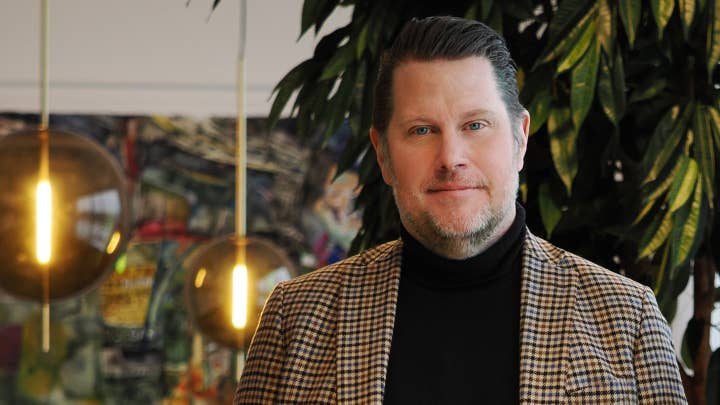Embracer CEO Lars Wingefors: "I'm sure I deserve a lot of criticism"
Group owner defends teams and their leaders, says he still believes in the company's mission
Sign up for the GI Daily here to get the biggest news straight to your inbox
Lars Wingefors, CEO of the Embracer Group, has acknowledged the backlash against himself and his company in the wake of mass layoffs and studio closures.
Speaking to GamesIndustry.biz after the group announced it would be split into three, Wingefors told us he has been "taking a lot of hits and criticism, both internationally and in Sweden."
"It's been painful," he said. "But I still believe in what we do, I believe in my teams and the vision we set out. I also believe the public markets, if we do it right, are a fantastic place to finance your business and tap into both investors and the debt market.
"But you need to execute well. If you do, it could be a fantastic platform to enable growth and to really have a competitive edge."
While many games firms have implemented widespread layoffs in the past 18 months, Embracer has been under particular scrutiny due to its nine-month restructuring program that followed six years of aggressive mergers and acquisitions and the collapse of a $2 billion investment deal by Savvy Games Group.
At the DICE Awards back in February, Kinda Funny CEO Greg Miller even joked on stage that one of two things people in the industry don't want to hear is "The Embracer Group are here," adding: "They've really f***ed up this place, haven't they?"
When asked how he responds to such criticism, Wingefors told us: "As a leader and an owner, sometimes you need to take the blame and you need to be humble about if you've made mistakes and if you could have done something differently."
He continued: "I'm sure I deserve a lot of criticism, but I don't think my team or companies deserve all the criticism. I could take a lot of that blame myself. But ultimately I need to believe in the mission we set out and that is still valid, and we are now enabling that by doing this [new] structure.
"I still feel I have the trust from many or all of my key entrepreneurs and CEOs that have joined the group. It's been difficult, but I think they all believed in the mission of Embracer. They also understand that the world has changed, we need to change. It's painful. We can't make all the games we wanted to make three years ago, but we need to adapt to it. We will still make games, we still have one of the biggest, if not the biggest, pipeline of games in the industry. And we have great plans over the coming years or decades."
When asked about what his mistakes were, Wingefors did not get into specifics, instead referencing a "long list" of things he and Embracer Group could have done differently but standing by the company's overall strategy.
"In every given moment, you are making decisions you believe are right," he explained. "When we were at the peak of 2020, 2021, we made all those decisions to acquire or organically set up or invest… and everyone was backing that. I firmly believed in that. The outcome, because it takes a number of years to make games, is different and it's painful and we need to adapt to it.
"We have been trying to safeguard as many jobs as possible. We've been trying to find new homes for teams and people... It's easy to look back in hindsight on things."
Earlier this month, we spoke to Saber Interactive founder and CEO Matthew Karch who said that it was the €2.75 billion acquisition of Asmodee that officially pushed Embracer into debt for the first time.
Wingefors confirmed this, but defended the decision to buy the tabletop publisher.
"It's a business I really enjoy and I would like to be long term in. But in hindsight, yes, we put on debt [acquiring Asmodee], and that has been painful," he said. "I think it's too early to say what's right or wrong in this."
The full interview is now live and you can read it here.

